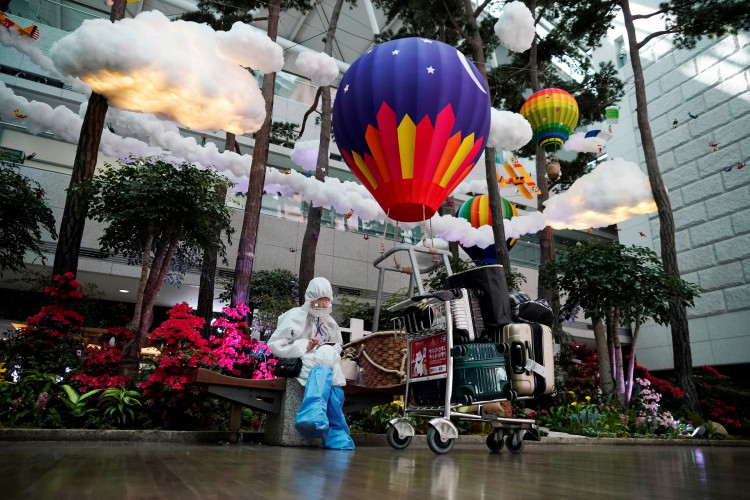Things are moving backwards in some countries in Asia despite zero new cases in China for the first time since the coronavirus started circulating in the country in December. An uptick in new imported cases is the center of recent CoVID-19 studies in the region.
Japanese Man Who Wanted to 'Spread the Virus' Succumbs to CoVID-19
The Japanese man who went viral in Asia after he said he wanted to "spread the virus" has passed away from the novel virus, local authorities from Aichi Prefecture's Gamagori town revealed on Wednesday.
According to Kyodo News, the man in question tested positive of the coronavirus on March 4. He went on to drink in two different establishments across the city even after he was told to self-quarantine at home.
The said man also had underlying health issues and local police were planning to question him due to his move of not adhering by medical advice when his CoVID-19 results came out positive.
A female worker at one of the pubs the man went to has since contracted the fast-spreading disease.
South Korea Sees Spike in New Clustered CoVID-19 Cases
On Thursday, the Korea Centers of Disease Control and Prevention (KCDC) saw a spike in new cases, but the new coronavirus cases in the country were found in some clusters, Yonhap News reported.
One of the latest clusters in the country was discovered by Daegu officials from a nursing facility, while seven other new cases were found in five different nursing facilities across the city.
Seoul reported 12 new cases, and another cluster was discovered among people who participated in a competition in Hungary last week. The Korean Fencing Federation said three national fencers have since tested positive of the CoVID-19 strain.
Malaysia Reports 513 Confirmed Cases among Tabligh Attendees
Malaysian health director-general Dr Noor Hisham Abdullah revealed on Thursday that of the 10,650 people who attended a tabligh (religious gathering) at the Jamek Sri Petaling mosque late last month who were traced, 513 have since tested positive of the novel virus.
Of the people who were traced, 4,986 people were tested for potential CoVID-19 infection, the Malay Mail reported. Noor Hisham went on to reveal that one of the people who attended the said event succumbed to the disease on Tuesday.
659 of the people tested for potential infection have been admitted to the hospital while 6,627 others were placed in home isolation as they are being observed by the authorities for potential symptom-showing.
As of Thursday morning, Malaysia reported a total of 790 confirmed coronavirus cases, two deaths, and 60 patients who have completely recovered.
Singapore Sees Significant Spike in Imported CoVID-19 Cases
Singapore reported a total of 47 new coronavirus cases in the city-state. However, 33 of the said new cases are imported and were not locally transmitted.
The said number accounts for the highest spike in daily cases in the city-state to date. 30 of the new cases are Singaporean residents who returned to home turf and after they contracted the disease abroad, Channel News Asia reported, as confirmed by local authorities.
Due to the new confirmed cases, Singapore has a total of 313.
Uptick in Imported Cases Tracked Across Asia
For the first time since the novel coronavirus hit Wuhan in China, the country reported zero cases on Wednesday, marking the first biggest achievement for the government's handling of the coronavirus situation.
However, things are different in other countries, including South Korea and Singapore. Some officials in Hong Kong, S.Korea, and even in China, believe that new CoVID-19 cases in the country appear to be coming from outside their borders.
Imported infections are a huge challenge for many health officials and professionals in Asian countries, especially after some nations such as China and South Korea appear to have successfully contained the disease.
On the other hand, the rise in new imported cases throughout Asia poses a new threat to the efforts of governments and health providers in preventing further infections among citizens who come in contact with people going back home.





